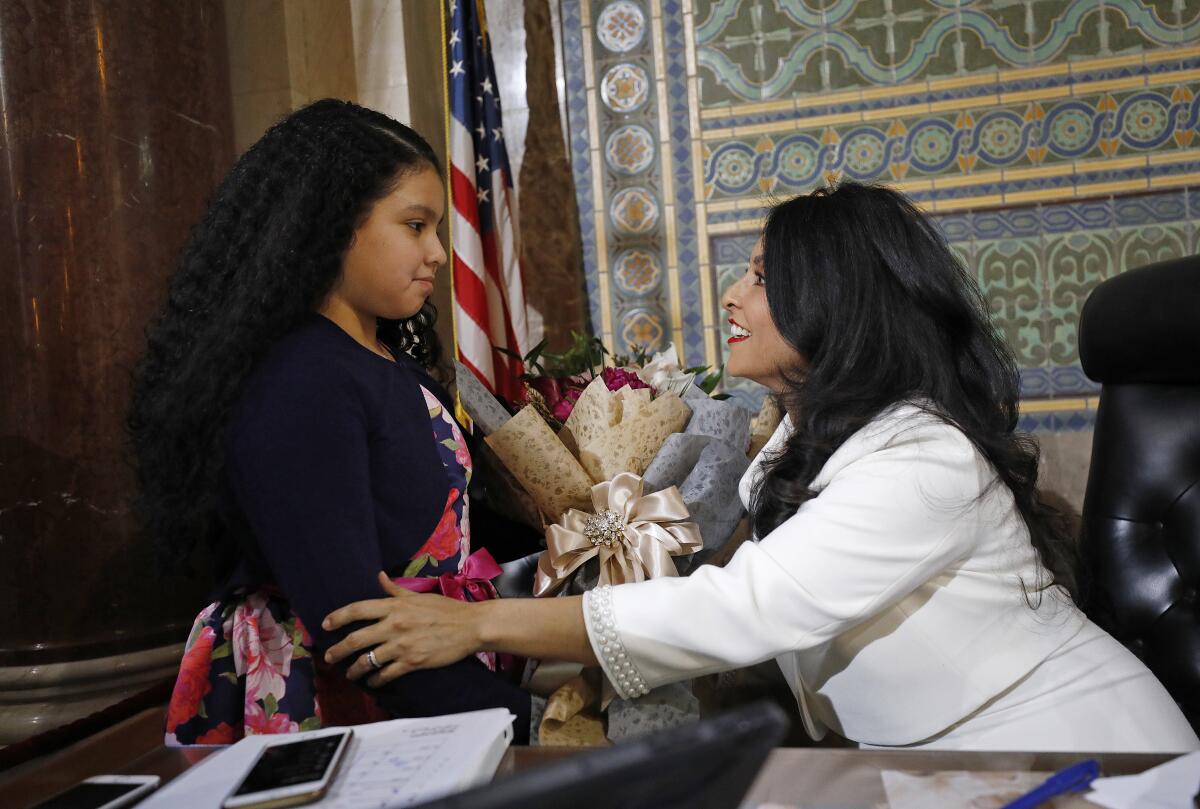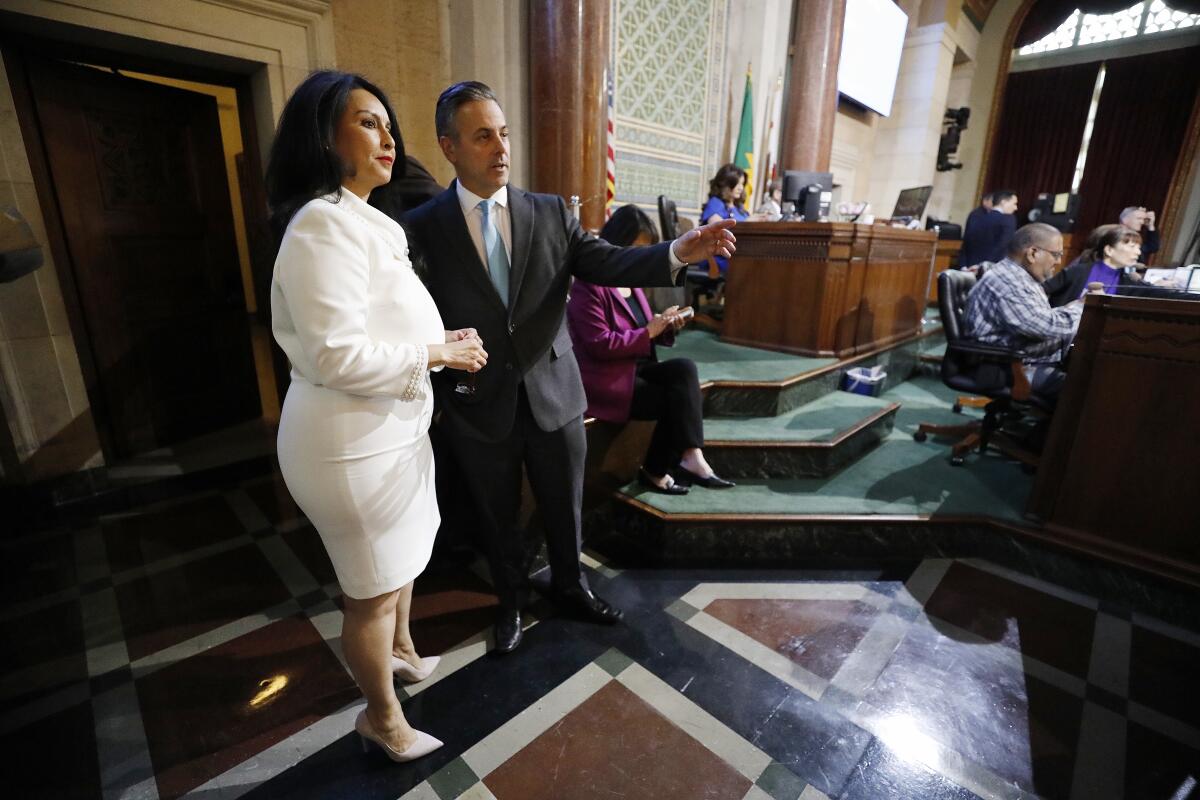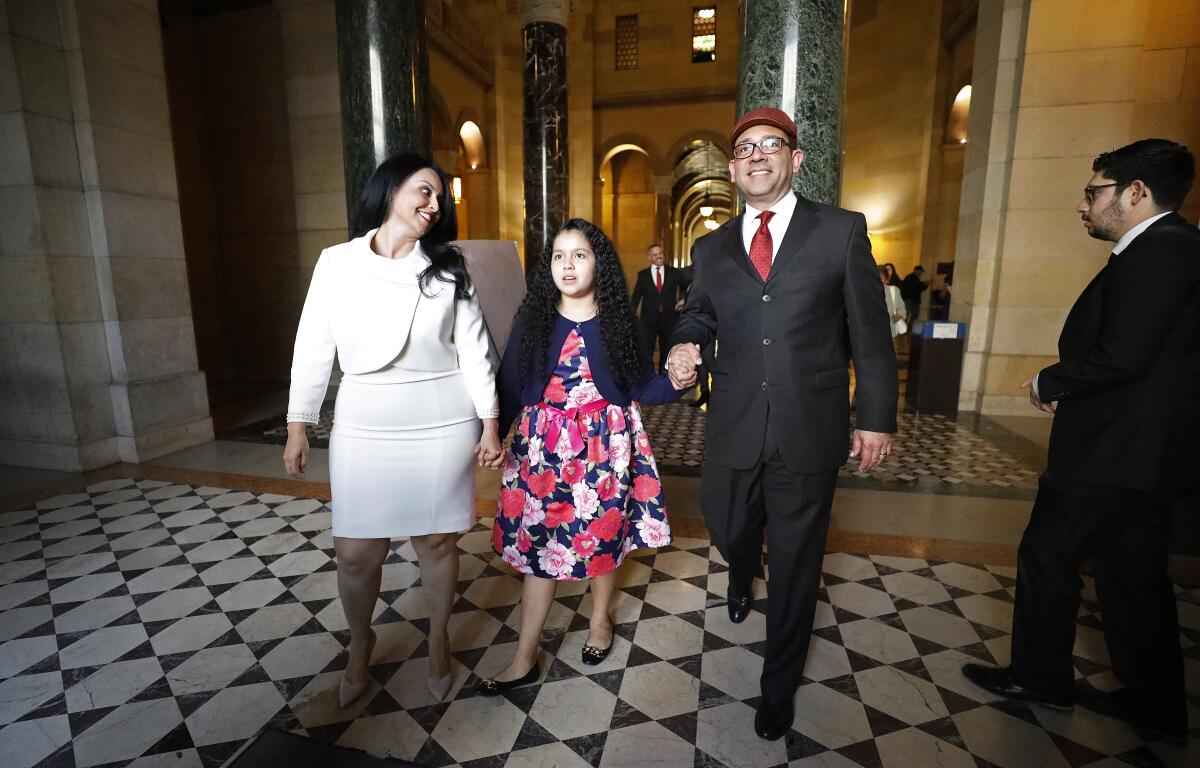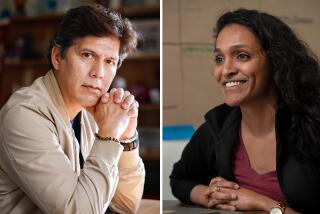L.A. council president: It’s time to reexamine how we’re handling homelessness

Nury Martinez outlined a “families first” agenda Tuesday as the new president of the Los Angeles City Council, vowing to reassess how homeless services are provided to needy residents, help struggling families and foster youth, and clean up city streets sullied with trash and encampments.
“I am a child of the working poor,” said Martinez, the daughter of a dishwasher and a factory worker who emigrated from the Mexican state of Zacatecas. “And this is why I champion issues of the working poor.”
Martinez is the first Latina to hold the powerful position, which gives her the authority to decide when new proposals are vetted at council meetings and choose who sits on committees that oversee crucial matters such as homelessness and the budget.
In a speech at City Hall, she announced new proposals to reexamine Los Angeles’ strategy on homelessness and scrutinize the structure of the Los Angeles Homeless Services Authority, a joint agency created by the city and county. In a motion, she questioned whether LAHSA was still an effective model for tackling the crisis as the number of people bedding down on city streets has soared.
Following the speech, Martinez told reporters she had raised those concerns before at City Hall: “Is this governing structure working for the city of Los Angeles? And how do we ensure that we’re actually getting our fair share in terms of services?”
The council president, who represents San Fernando Valley neighborhoods including Arleta, Panorama City and Sun Valley, also said that in the face of frustration with homeless encampments on city streets, the city owed residents a “balanced approach.” Martinez told reporters that some residents “can’t use their parks, can’t even access their sidewalks to take their kids to school.”
“We need to ensure that decency and compassion is something that we lead with when making sure these cleanups are taking place,” Martinez said in her speech. “But we also have to restore order in our streets.”

When asked how the city was falling short of that balance — and on which side — Martinez said it depended on the part of the city. She and other council members have raised concerns about a revamped system for cleanups that was rolled out last year, which Mayor Eric Garcetti had heralded as a “more nimble, flexible, targeted and sensitive approach to our streets.”
Councilman Joe Buscaino, who was chosen last month as president pro tempore, praised Martinez as “a leader who is going to be tough on these issues, who is going to speak the truth about the quality of life in our city.”
“If we’re going to be compassionate about solving the homelessness issue,” Buscaino told reporters, “we have to be compassionate about everyone.”
UCLA professor emeritus of law Gary Blasi, who specializes in homelessness issues, said that whenever a politician talks about a “balanced” approach to homelessness, “it’s pretty easy to tell who’s going to come out on the short end.”
“She’s very much on one side of that balance,” Blasi said, pointing to recent cleanups that ejected homeless people from the Sepulveda Basin, which Martinez represents. Blasi complained that there hadn’t been “any serious effort” to find somewhere else to live for those who were displaced. “There is this strong desire to have people disappear.”
Lake Balboa resident Bill Haller, who is running against Martinez in the upcoming March elections, complained that Martinez’s approach on homelessness had been reactive and inconsistent. He questioned why she had not taken swifter action on issues like the effectiveness of LAHSA, remarking that “she’s been in office for six years.”
Martinez pointed back to more than 300 housing units for homeless people approved in her district under Proposition HHH, a $1.2-billion bond measure for housing. She called the Sepulveda Basin cleanups a matter of public safety and said they had included outreach, declaring in a statement that “I am not going to wait for someone to die there under my watch because we turned a blind eye.”
In her Tuesday speech, Martinez said she also wanted to launch a revolving loan program to help working families pay for necessities, push to expand paid leave for new parents, offer incentives for businesses to hire foster youth, and work to protect board and care facilities that provide shelter, meals and other assistance to indigent residents.
She tied those plans to personal experiences: Martinez recounted hearing from her young daughter that she was worried about a friend whose father was injured and unable to work, who feared he would lose his job and be unable to pay his medical bills.

“My daughter asked me that night, ‘Is my friend going to be OK?’ ... I could not reassure my 10-year-old daughter that her best friend was going to be OK,” Martinez said.
Martinez said she would also push to recruit more women into city departments that fix and light city streets and launch an internship program to introduce disadvantaged teens to city jobs. And she vowed to hold the heads of city departments accountable, complaining that too often, council members had voted for new policies only to later find they were never enacted.
Martinez replaces Herb Wesson, who is running for a seat on the county Board of Supervisors, as the council president. As the head of the council, Wesson frequently oversaw unanimous votes at City Hall and often minimized debate on the council floor.
When asked how her leadership would be different, Martinez suggested that might change. “I’m not afraid of having an 8-to-7 vote on any given Tuesday, Wednesday or Friday,” she told reporters.
More to Read
Sign up for Essential California
The most important California stories and recommendations in your inbox every morning.
You may occasionally receive promotional content from the Los Angeles Times.











